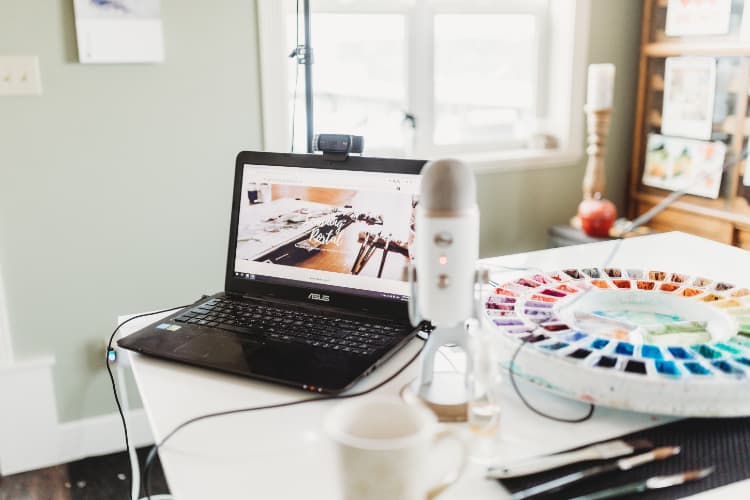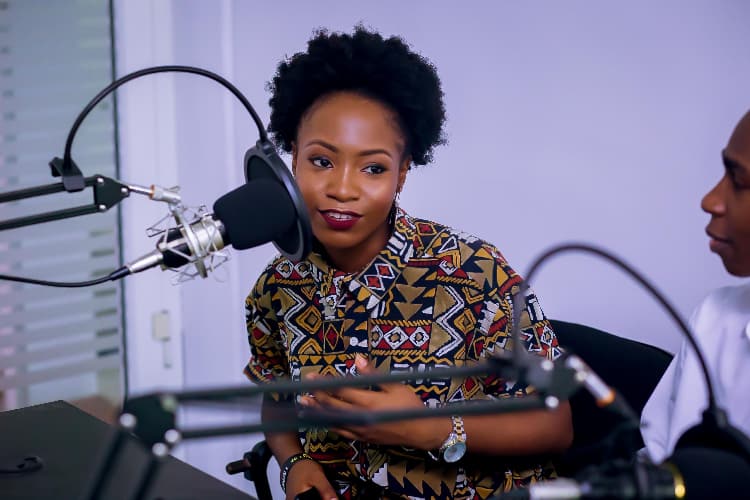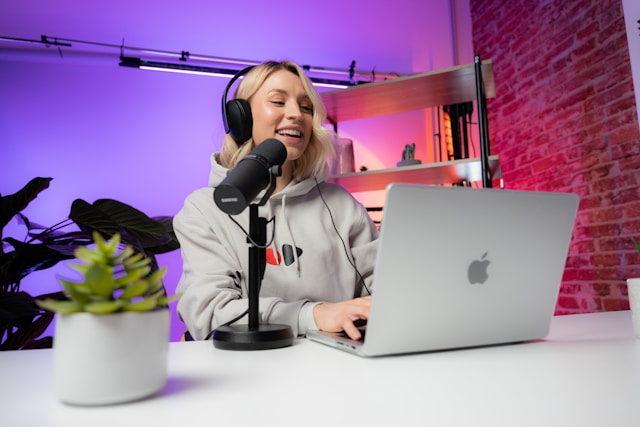Estimate reading time: 4:16
Should you have an outline, script or free-form for your podcast? Coming up with valuable content for a podcast is challenging. For instance, scripting your entire episode is time consuming not to mention impractical when publishing weekly episodes. If podcasting isn’t your fulltime job, finding time to write a scripted podcast is unlikely. What about outlines? Some podcasters swear by outlines as a guide for their episodes, while others take the unrehearsed free-form approach. In this article, you’ll discover ways to plan your episodes based on what works best with your podcast style.
Planning a Podcast Episode With an Outline
Jotting down outlines for your podcast is hugely popular. Pop open a cloud-based app such as Google Docs and write down major points in bullet form. This can be the foundation to your show. Moreover, you can add minor talking points in between significant topics. Quickly add or remove ideas, concepts and commentary. In such cases, a well-developed outline frees your mind from storing too much information. By having a clear mind, you can focus on delivering your message without having to remember too much information.
Additionally, an outline keeps you from rambling, an insufferable occurrence that for the most part, is off-putting for listeners. As they say in broadcasting, “don’t bury the lead”: bullet points keep your message on point and maintains the focus on what really matters.
The trick is use an outline to riff on a subject. If you find yourself incapable of on-cue improvisations, try the following exercise. For each talking point you’ve outlined, discuss something relevant for a duration of one minute. Choose topics you’re familiar with at first followed by topics you know very little about. Professional actors cut their teeth on this type of quick-thinking process. In the meantime, you’ll appear to struggle but with time, practice and consistency, your responses will appear more organic.
Nonetheless, nothing beats knowing your subject matter thoroughly so you can share your knowledge with others. Microphone confidence and putting your best foot forward appear to increase authoritativeness so become an expert at what you’re dishing out.
Planning a Podcast Episode With A Script

There are times when a podcast outline just won’t cut it. For instance, true crime podcasters and storytellers, whereby the narration is critical, rely on scripted content as part of their message. In such cases, specificity is important and offers little room for improvisation. There are times however when the occasional off script commentary is helpful, offering perspective, clarity and insight on a topic. By the same token, commentaries are opportunities to showcase who you are as an individual while sharing a piece of your identity with your audience.
Scripted podcasts can also be useful in interviews. Say for instance you happen to be interviewing an author. Writing down and reciting verbatim the questions you intend on asking can facilitate the interview process; especially useful if you find yourself struggling to remain concise. In the end, succinct and ramble-free questions are what your guest is looking for.
Although we do recommend using a combination of outlines and scripted content, there are limitations to using scripted content exclusively. What we mean is that scripted podcasts can sound dry, rehearsed and lacking passion. Think politicians: - the politicians armed with stellar off-script communication skills leave the biggest impact on others. Of course, possessing loads of charisma helps but scripted content needs to feel loose.
Finally, if you’re not confident with creating outlines, start off by scripting your podcast while gradually tapering off until neither one is needed.
Planning a Free-form Podcast

For podcasters blessed with the gift of gab, recording an unscripted podcast comes natural. For others however, the ability to speak with eloquence and fluency doesn’t come easy. There is absolutely nothing wrong with free-forming your podcast. Remember that you can always edit a podcast in post. For instance, you can remove excessive silences (dead space) and those annoying “umms” and “ahhs” as you search for the right words. This form of podcast planning however does result in more edits having to be made during audio post production so plan accordingly and make time for edits.
Remember that for more experienced podcasters, free-form podcasting is a result of years of consistent podcasting. Furthermore, in some regards, segments of your podcasts will come easier than others. For instance, your show's intro and repetitive portions that you’ve memorized verbatim will seem effortless compared to new content that requires more attention. Ultimately, practice makes perfect so don’t despair if you need some scripted assistance until then. To minimized your post production edits, we recommend reading our How to Record Voice Overs article.
Conclusion
Your creative style determines which style you choose to adopt in regards to content creation. Outlines, scripts and free form approaches are all useful. Perhaps, it’s best to see them as fluid and specific to the type of content you’re creating. That said, remember that irregardless of which style you choose, have fun and let things happen as they come.



